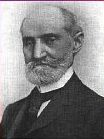Fever
For women and children with light hair and eyes, who suffer severely during menstruation and pregnancy, unmarried and childless women.Adapted to book-worms, sensitive, romantic girls with irregular menstruation, rakes, onanists and persons debilitated by sexual excesses.
Nausea or vomiting from riding in carriage, boat or rail road car (Arnica, Nux moschata), or even looking at a boat in motion, sea – sickness.
Headache: in nape and occiput, extending to the spine, as if tightly bound by a cord, with nausea, as if at sea, at each menstrual period, aggravation by lying on back of head.
Sick headache from carriage, boat or train riding.
Diseases peculiar to drunkards.
Time passes too quickly (Theridion – too slowly, Argentumn., Can.I.).
Cannot bear contradiction, easily offended, every trifle makes him angry, speaks hastily (Anacardium).
Great lassitude of the whole body, it requires exertion to stand firmly, feels too weak to talk loudly.
Bad effects: from loss of sleep, mental excitement and night watching (Colchicum), feel weak if they lose but one hour’s sleep, convulsions after loss of sleep, of anger and grief.
Vertigo: as if intoxicated, when rising in bed or from carriage riding, must lie down (Bryonia – worse when sitting than walking, and extreme when lying down and closing the eyes, Apis).
Sensation: in abdomen of cutting and rubbing on every movement, as of sharp stones, of hollowness in head and other parts (Ignatia).
During the efforts to menstruate she is so weak she is scarcely able to stand from weakness of lower limbs (Alumina, Carbo a.), after each period hemorrhoids.
Leucorrhea: in place of menses, or between period (Iodium, Xan.), like the washings of meat, like serum, ichorous, bloody, during pregnancy.
Aggravation: Drinking, eating, sleeping, smoking, talking, riding in a carriage, cold air, motion of carriage, swing or ship.
Amelioration: At night, after sweat.
Type: Bilious and lingering gastric, insidious, “sneaking,” low, typhoid, nervous, especially when produced by fits of anger or disposition to anger.
Prodrome: Great dread of the coming paroxysm. (Nat.).
Time: 8-11 A.M. Afternoon or evening.
Chill: Without thirst. Chilliness alternating with heat. Shaking chill for half an hour at 8 A.M., without thirst and without subsequent heat ( Causticum ) Shaking chill over the whole body in the afternoon, or in the evening. Chill, with severe colic, not relieved by a warm stove, with lameness of the small of the back, chill more in the back and on the legs, in afternoon or evening, with shivering through the whole body, not ameliorated by external warmth. Continuous chilliness with hot skin. Chilliness at 11 A.M. with disgust for even smell of food. Shaking chill (upward and downward) ceases when diarrhea and vomiting set in. Nervous, spasmodic symptoms. The cold stage is predominant.
Heat: Without thirst. Dry heat during the night. Flushes of heat, with burning cheeks and cold feet. Intolerance of both cold and warm air, ( Baryta, Camph. ). Burning hat in the cheeks, which are glowing hot, with coldness of whole body, or only of the feet ( Caps. ) Now one hand, now the other, is alternately hot or cold ( Digitalis – see Causticum – one foot hot the other cold, Lycopodium ) Vertigo and nausea on raising the head. Stupor with consciousness.
Sweat: Of the body from evening till morning, which is cold only on the face. Sweat in the morning, especially on the chest. Cold sweat, now on one, now on the other hand. Sweat over the whole body during the slightest motion. (Bryonia). Sweat of the affected parts ( Amb., Ant.t. ).
Tongue: Coated white, edges dry. Loss of appetite, with metallic taste (Mercurius). Tobacco tastes bitter. Aversion to sour things (desire for pickles, Ant.c.).
Apyrexia: When the fever threatens to assume a slow, “sneaking,” nervous form, attended with vertigo, dull pains in the head, general weakness and physical depression, anorexia, with a tongue comparatively clean, but a marked tendency to nausea – as if the stomach was always nauseated, Cocculus should be thought of.

